Working on Farms in Africa Full of Challenges, Pleasure
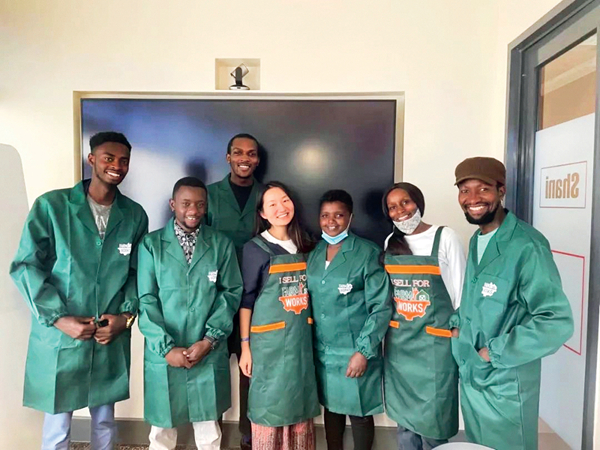
Li Yi, 27, is a native of Nantong, in East China's Jiangsu Province. She used to work at McKinsey & Company. Curious about Africa, Li applied for a transfer from her company's Beijing office to its Nairobi office, in Kenya, in 2019. At the beginning of 2021, she quit her job to start an agricultural business in Nairobi. "I think African agriculture has a lot of potential, so I want to give it a try," she says. You You, a writer for zpselfie, a section of Toutiao, an online-content platform, recently interviewed Li, and she wrote the following article as if Li were writing it in the first person.
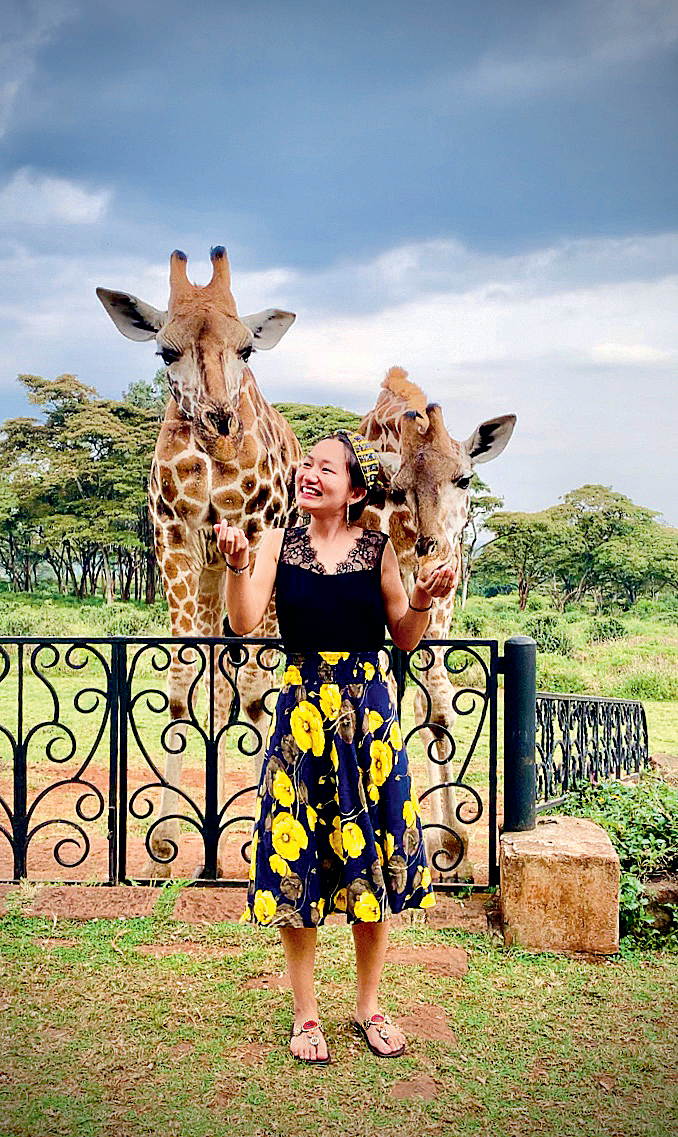
I have always believed that many people have a new things, but they don't necessarily have the opportunities to do so. I think I am lucky enough to have such opportunities. Since I left my hometown, to attend high school in Nanjing, capital of East China's Jiangsu Province, when I was 15, I have been going to new places, exploring new territories, and living new lives.
Like most Chinese parents, my parents always cared about my academic performance. But my mother often asked me, "Did you have a good day at school?" instead of "Did you have good results on your examination?" In this regard, I feel grateful, because she helped me develop an optimistic and happy attitude toward life.
During the first summer vacation of my high school years, I attended a summer camp in the United States. After I returned from the summer camp, I established an environmental-protection club at our school. I still remember our club won second place during an environmental-protection contest, and our club members were invited to participate in a tree-planting activity in North China's Inner Mongolia Autonomous Region.
Since high school, I have gradually developed the ability to plan events, communicate with others, and call on people to do things together.
In 2012, I was admitted to Pomona College, in California, the US. During vacations and while on a student-exchange program, I visited dozens of European and American countries. Each journey was full of stories, and I became more experienced in traveling alone. As I let go of my fear of unknown destinations, the world opened up to me — in a different way.
During the semester before graduation, I found a part-time job at a local farm. That was my first real involvement in agriculture, and it was the first time I really understood how hard it was to farm. But if someone had told me back then that I would still be farming five years later, in Africa, I wouldn't have believed it.
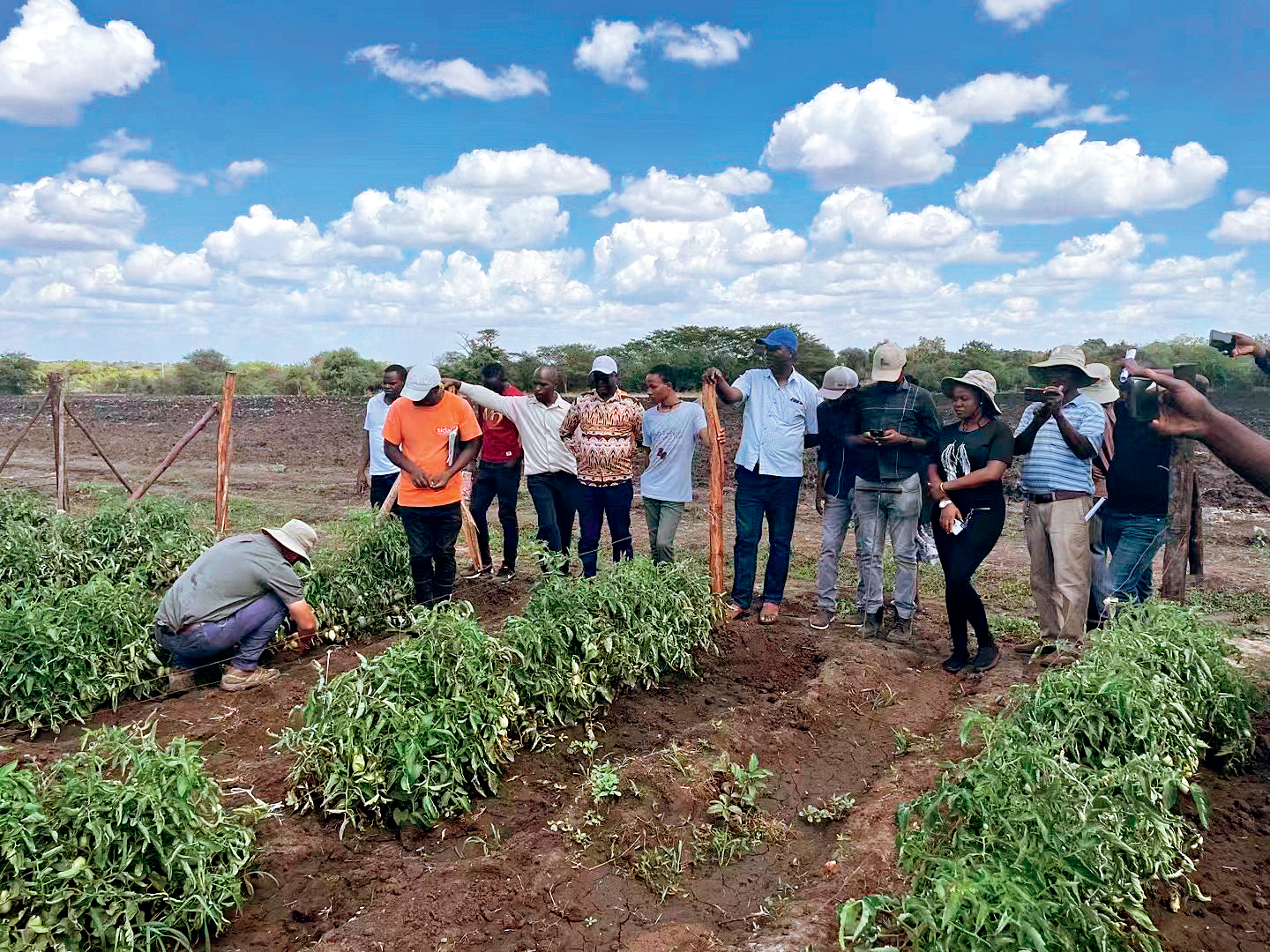
After I graduated from Pomona College in June 2016, I began working in the Los Angeles office of McKinsey & Company, the trusted advisor and counselor to many of the world's most influential businesses and institutions.
After a year in Los Angeles, I had to change countries because I failed to get a work visa. I could go abroad for a year and then transfer back to the US. So, in the summer of 2017, I was transferred to the Beijing office.
As the process of changing offices took a while to work out, I decided to take some time off. I traveled around China, and I also visited several southeast Asian countries. I started to work in the Beijing office in January 2018.
A year later, the company told me that I could return to the US, as my work visa had been approved. But I didn't want to go back, because I thought working in developing countries would be more interesting. So, I was transferred to work in the company's Nairobi office at the end of August in 2019.
As far as I am concerned, working in Kenya is more interesting and challenging, as I have been participating in many national-level projects in Kenya.
At the end of 2020, I came up with the idea of starting my own business. My boss told me one of the agricultural companies he invested in was looking for a partner. I felt this company fit my requirements perfectly. In April 2021, I joined the startup agricultural company, as a co-founder, and I was responsible for operations and marketing.
I think African agriculture has a lot of potential. Starting a business is different from working as a counselor. Although they are all about solving business problems, starting a business requires entrepreneurs to have a greater sense of ownership. In the startup company, I feel I am growing with the company.
My parents and friends say they understand my decision to start an agricultural business in Africa. I also want to give myself a new environment to grow, quickly, and to make my life more challenging.
In the beginning, we only had a 30-acre farm. I oversaw almost everything, except the production. I still remember the first day I arrived at the farm; I was shocked to see the workers record all sorts of statistics on paper, and to improve work efficiency, I trained them to use a recording system on a computer.
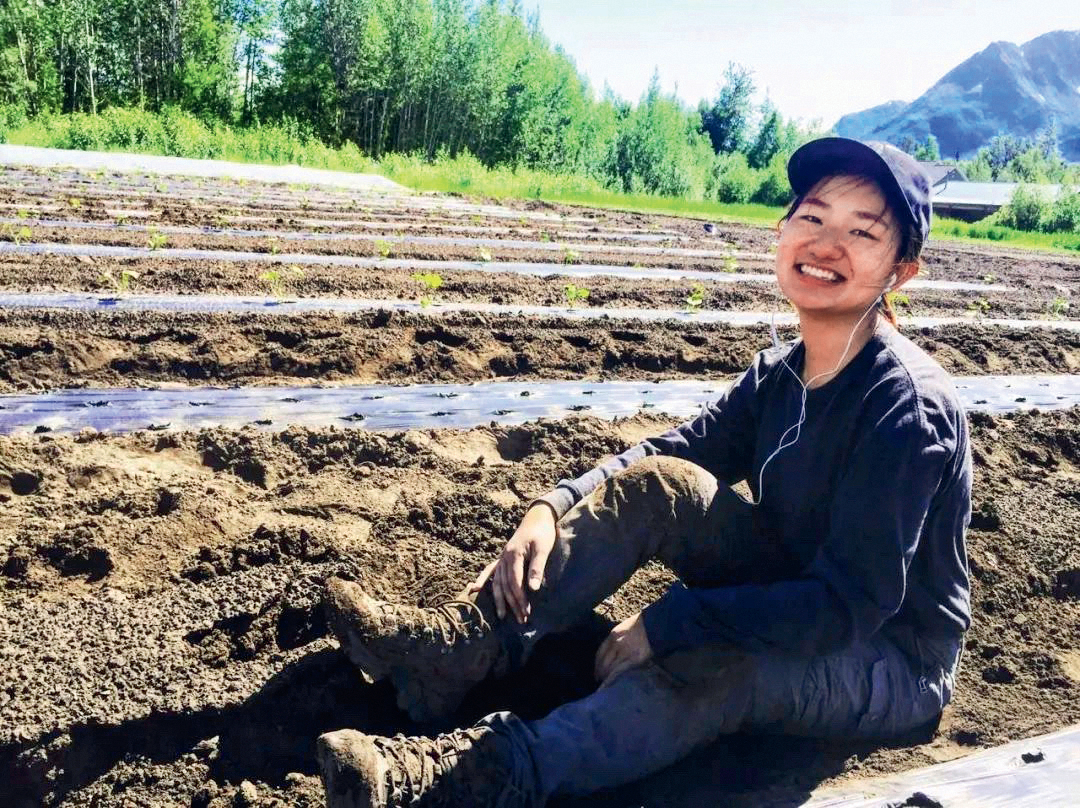
Our company aims to provide better quality and more affordable fresh vegetables to the local market. The main agricultural products are peppers, eggplant, potatoes, tomatoes, cucumbers and so on.
At present, we have a combined 165 acres on three farms, a large storage house and more than 400 employees. One of the farms is about a two-hour drive from Nairobi. We have six drivers and five trucks, and the drivers deliver about 10 tons of vegetables every day.
Our company participates in more than 600 agricultural projects in Kenya. We often organize the local farmers to visit our farms and storage house, and to attend training courses to learn how to grow vegetables in a more scientific way. We purchase vegetables from them.
Normally, we harvest and sort the vegetables the same day, and we deliver them before dawn the next day, so it basically takes less than 24 hours to transport the vegetables from the fields to the market.
We have also established a product-traceability system. For example, if a tomato is rotten, we can find out which farm it came from, and who sorted it.
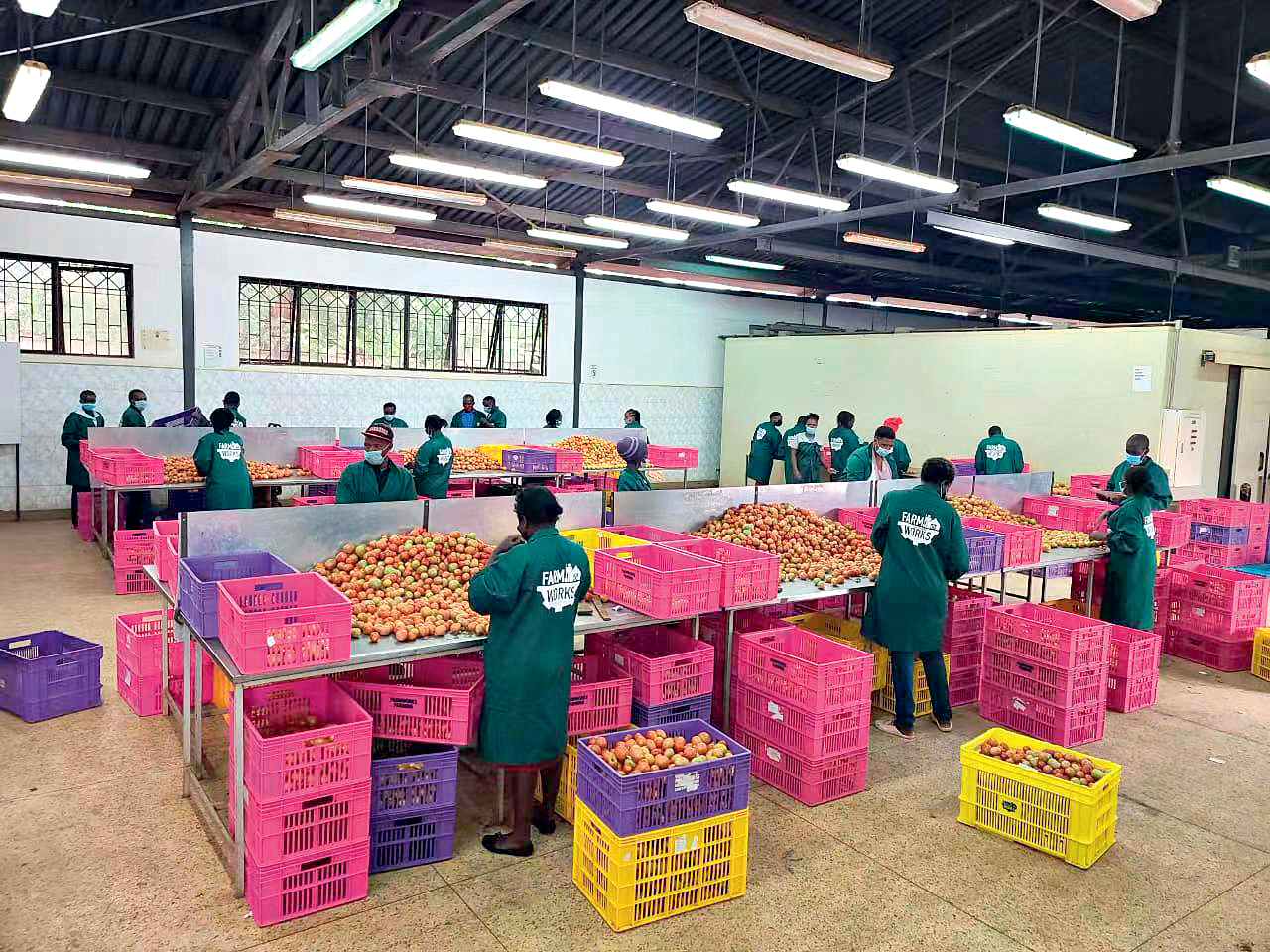
My Kenyan business partner, Peter Mouchy, is an experienced businessman who is willing to obtain new knowledge and accept new concepts. He is mainly responsible for production and training.
He says my joining the company has helped the company's development. Our company has taken advantage of many experiences and technologies from China, such as the building of greenhouses and the use of automatic-irrigation and unmanned aerial automatic-control spraying systems. I think our cooperation in the company is a win-win situation.
As I have lived in many countries, I am good at getting along with people from different cultures. There is no communication barrier between us, and I have learned a lot from my Kenyan friends. Most of them are optimistic, and don't have anxieties.
We hope our company can help unlock the potential of the agriculture sector in Africa, and also help local people improve their lives through developing agriculture.
Our farms are on the right track. Maybe I will not take a full-time position in the company if our farms keep developing steadily in the future. I want to spend part of my time in Kenya, and, for the rest of my time, I want to go back to China, or to other countries.
Since I began working in agriculture in 2021, I have taken fewer vacations, and I have visited fewer countries than before, but I know I have been on the path of self-creation, and I have experienced a more diverse range of pleasures.

Photos Supplied by Li Yi
(Source: zpselfie/Women of China English Monthly June 2022 issue)
Please understand that womenofchina.cn,a non-profit, information-communication website, cannot reach every writer before using articles and images. For copyright issues, please contact us by emailing: website@womenofchina.cn. The articles published and opinions expressed on this website represent the opinions of writers and are not necessarily shared by womenofchina.cn.

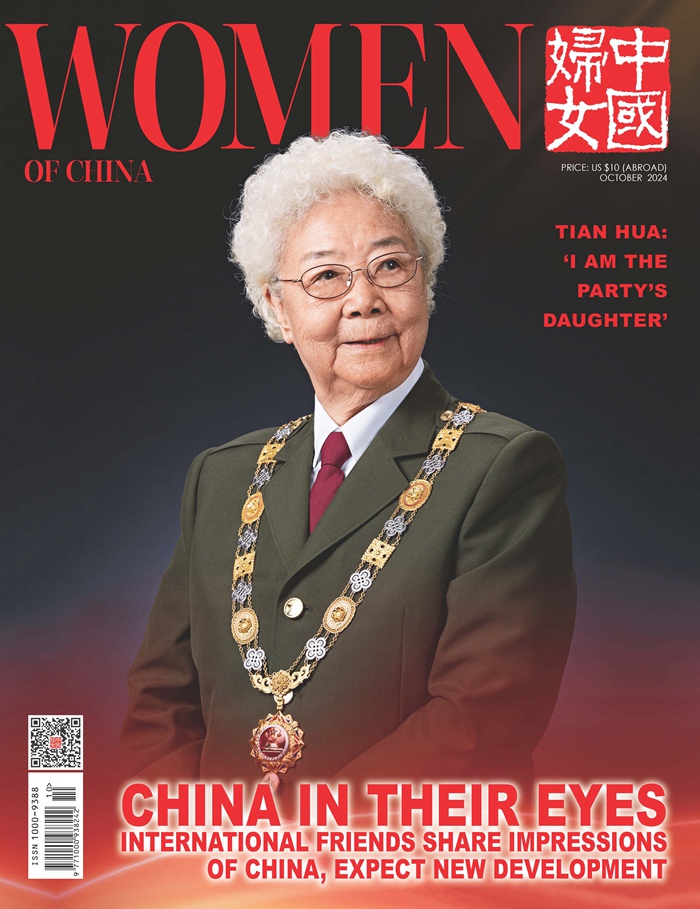




.jpg)

 WeChat
WeChat Weibo
Weibo 京公网安备 11010102004314号
京公网安备 11010102004314号